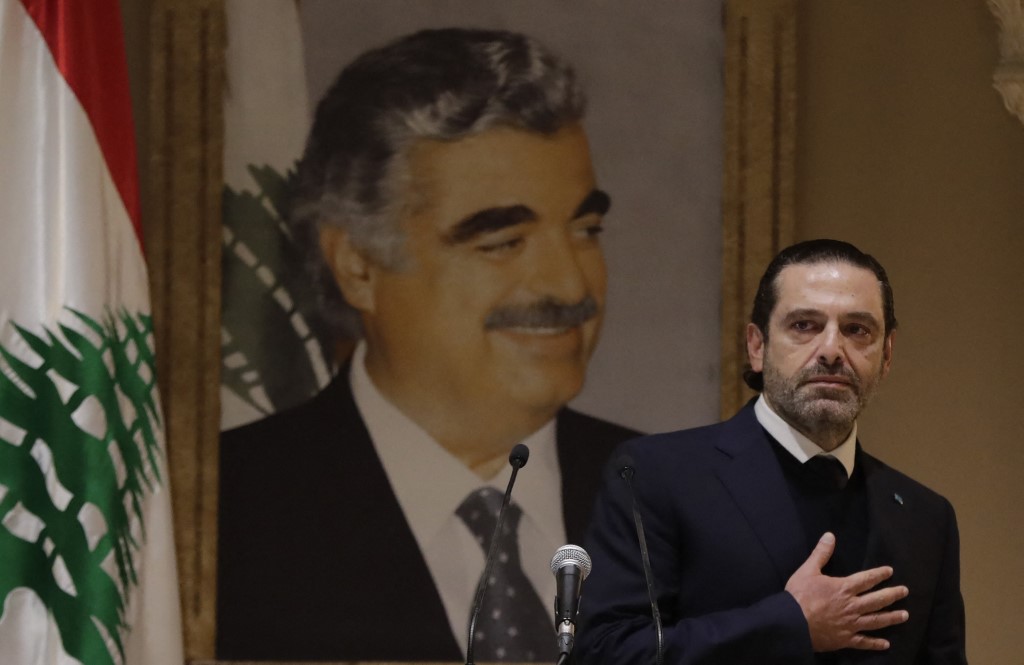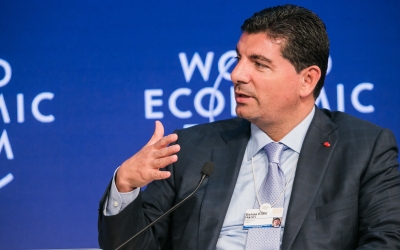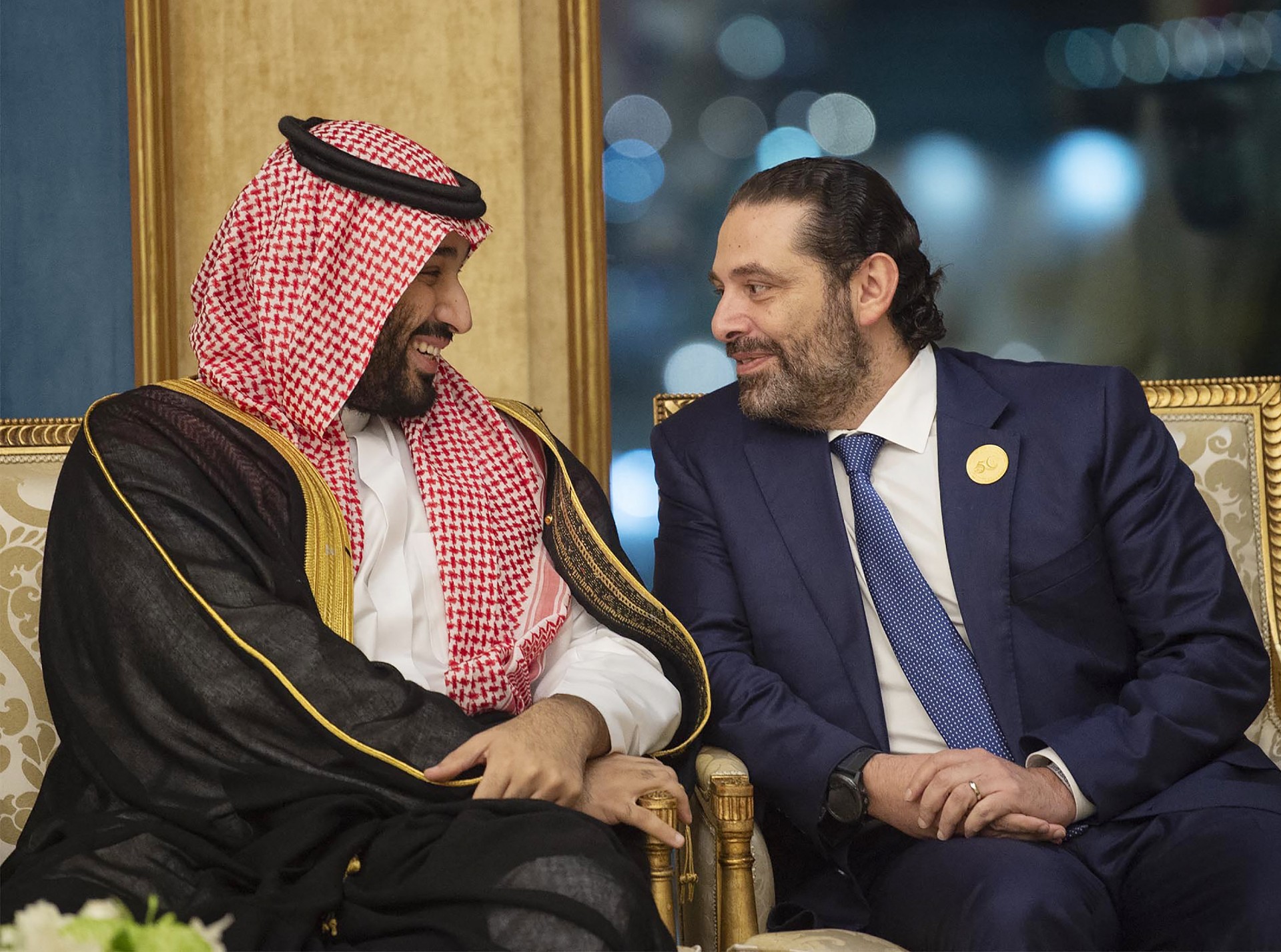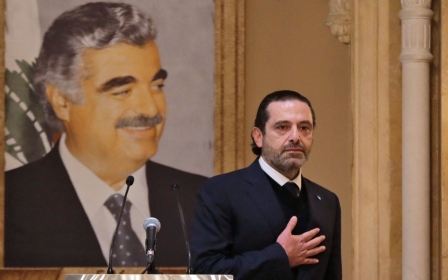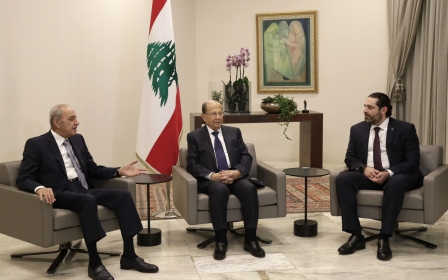Lebanon's Saad Hariri leaves a decayed dynasty and career of decline
Though the news had been expected, it nonetheless came as a political earthquake: Saad Hariri, Lebanon’s former prime minister, announced he was retreating from politics and neither he, nor his Future Movement, would be running in the May parliamentary elections.
“We are staying in service of our people and nation, but our decision is to suspend any direct role or responsibility in ruling, representation, or politics in the traditional sense,” Hariri said during a televised address, citing Iranian influence and sectarianism as key obstacles.
Heir to a once-powerful political dynasty dominating Lebanon’s financial, economic and political spheres, Hariri’s political and personal fortunes have taken an enormous hit over the past years.
His announcement and suspension of any formal participation in Lebanon’s political system are a long time coming, as his political allies weakened and adversaries, notably Iran-backed Hezbollah, became more prominent in government.
Rise of a political dynasty
New MEE newsletter: Jerusalem Dispatch
Sign up to get the latest insights and analysis on Israel-Palestine, alongside Turkey Unpacked and other MEE newsletters
Coming from humble origins in the southern town of Saida, Saad Hariri’s father Rafic made his fortune in Saudi Arabia during the oil boom in the construction industry, building close ties to King Fahd and even becoming a naturalised Saudi national.
By the time Lebanon’s 15-year civil war came to an end in 1990, Hariri senior had entered his country’s political fray. He presented himself as a successful emigrant businessman rather than a warlord, unblemished by the horrors of the civil war, eager to rebuild his country and put it back on the map. In 1992, he became prime minister, and led Lebanon’s post-war reconstruction.
Rafic Hariri extended his control to key state institutions, particularly the finance ministry, the Council for Development and Reconstruction, Middle East Airlines and the Central Bank, where he placed Riad Salameh, a banker who managed his personal finance portfolio in Paris, at the helm.
Hariri senior became a domineering figure in Lebanese politics from 1992 until 2005, serving as prime minister throughout most of these years, until he was assassinated in a devastating car bomb in February 2005 in the heart of Beirut.
A baptism of fire
His assassination shook Lebanon. The Syria-backed government resigned a week later. The Syrian army - present in Lebanon since 1976 - withdrew as the Assad government was widely seen within Lebanon and abroad as being behind the bombing, which killed 21 people alongside Hariri.
Amidst political assassinations and heightened tensions, Saad Hariri, as heir to the Hariri dynasty, was thrust prematurely into the limelight as the country’s preeminent Sunni leader.
He formally entered the political scene in the 2005 elections, as the Future Movement made significant electoral gains. His party was the leading force in the 14 March alliance - a group of sectarian and non-sectarian parties with sympathies to the West and the Gulf states, which opposed the Hezbollah-led and pro-Assad 8 March alliance.
Since the 1990s, the public debt had ballooned to catastrophic heights, while corruption became systemic under his father’s watch - the highly controversial reconstruction of Beirut’s central district being a case in point. The Lebanese state and public funds became the personal purse of warlords, businessmen and their Syrian military overseers, and little seemed to have changed following the Syrian army’s withdrawal (apart from the overt Syrian military presence).
Failed politics and business
The subsequent years were spent in political wilderness, tending to his businesses rather than to politics. Hariri spent much of those years in Saudi Arabia, citing security threats. The Future Movement - the core pillar of the 14 March alliance - limped on without a present leader, while the 14 March coalition
Hariri made a political comeback that year by coming to an agreement with Aoun and the FPM. Hariri would return as prime minister, while his parliamentary bloc would support Aoun’s presidential aspirations. This agreement was the first in a series of compromises Hariri made to 8 March.
In October 2016, Hariri’s second cabinet was born. But this comeback was riddled with massive missteps and setbacks.
The chunk of the business empire he inherited from his father began to crumble. Saudi Oger, the construction company his father founded, collapsed under the weight of its enormous debt in 2016. Saudi Arabia’s King Abdullah’s 2015 death heralded the rise of King Salman and his son Mohammed bin Salman, who gave Hariri nowhere near the same amount of backing.
In November 2017, in an absurd geopolitical episode, Hariri announced his resignation from Riyadh, reading a text visibly not his own. It later transpired that he had been held hostage in Saudi Arabia, only to be rescued via French diplomatic
The May 2018 elections were a major setback for Hariri. Due to declining popularity and a new electoral law, the Future Movement lost a large number of seats. As his government went into caretaker mode that month, it wasn’t until January 2019 that a new cabinet was formed, with Hariri’s rivals taking an even bigger share of the proverbial pie.
Hariri’s personal endeavours did not fare any better. Future TV, a once-dominant pan-Arab satellite station, shut down. Meanwhile, the New York Times revealed that Hariri paid an exorbitantly large sum to a South African model in 2013, while many of Future TV’s employees languished for months and years without receiving their wages.
By then, public disdain towards Lebanon’s ruling class reached new heights. The preceding years were characterised by political atrophy, deteriorating living conditions, rising costs of living and sporadic protests against the ruling class as a whole.
Crash and burn
The 17 October 2019 uprising took Lebanon’s ruling class by surprise. Saad Hariri resigned 12 days later, much to the anger of his rivals in cabinet, particularly the FPM.
Hariri spent the subsequent months plotting a comeback. The 4 August 2020 blast at the Port of Beirut provided such an opportunity. In late October, he was designated prime minister again.
Hariri presented himself as a martyr-like figure who has had to swallow the bitterest of pills and who has made the harshest of sacrifices
For 13 months, Hariri and Aoun engaged in a very public tit-for-tat. Hariri presented himself as a saviour, seeking to form a technocratic cabinet capable of pulling Lebanon out of the multitude of crises it faces, only to be confronted by Aoun’s
In Monday’s press conference, Hariri came across as a martyr-like figure who has had to swallow the bitterest of pills and who has made the harshest of sacrifices throughout his political career in order to protect Lebanon from civil strife.
Yet, this narrative conveniently ignores the fact that throughout all of his time in government - in both the legislative and executive branches - Hariri had little to offer other than the corrupt sectarian spoils-sharing so perfected by his father and the rest of the post-war elites.
A Sunni political vacuum?
With Saad Hariri and the Future Movement seemingly out of the political equation for the near future, a void is left to be filled in the country’s notoriously sectarian politics.
For instance,
Current Prime Minister Najib Mikati might have a powerbase in Tripoli, but corruption allegations hover over him like a dark cloud. Hariri’s own brother Bahaa, who has long stayed out of politics, has been trying to stage a political entry since 2020, but with questionable success.
Regardless of who adorns the mantle of “Sunni leader”, the long-awaited downfall (or, “suspension,” to borrow Hariri’s term) of the Hariri dynasty might open the way for alternative opposition groups to make gains in the upcoming elections.
At the very least, the downfall of a prominent political dynasty is a cause for rejoice for countless Lebanese, least of all the Beirutis who were robbed of their properties in central Beirut by Hariri’s father.
This article is available in French on Middle East Eye French edition.
Middle East Eye delivers independent and unrivalled coverage and analysis of the Middle East, North Africa and beyond. To learn more about republishing this content and the associated fees, please fill out this form. More about MEE can be found here.


